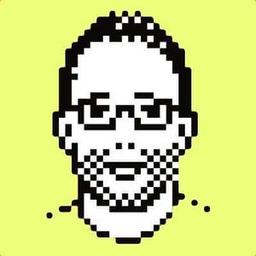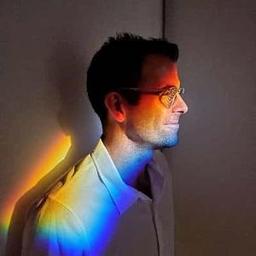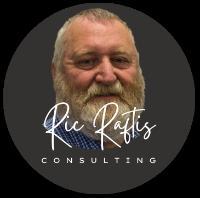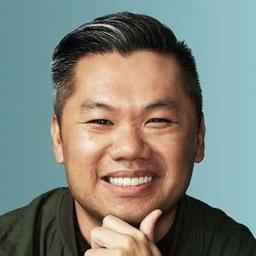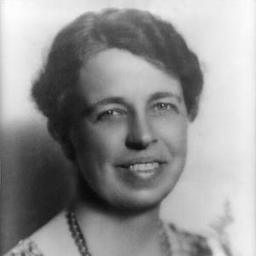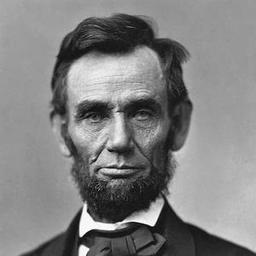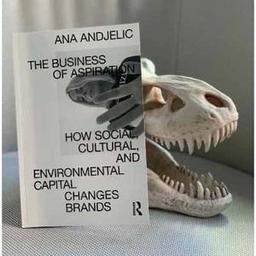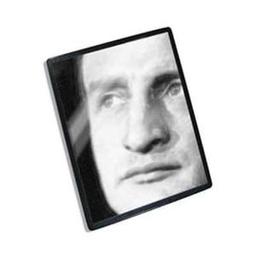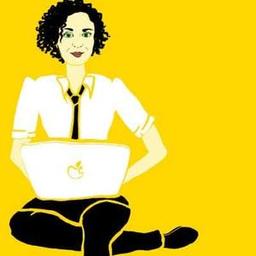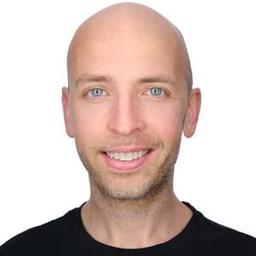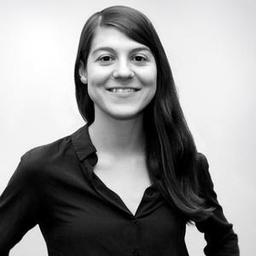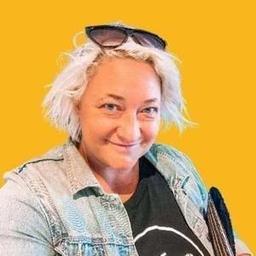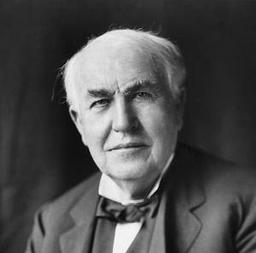82 Quotes
"We don’t write things down to remember them. We write them down to forget."
— Matthew Guay
Notes apps are where ideas go to die. And that’s good."That's the true value of notebooks, notes apps, bookmarking tools, and everything else built to help us remember. They’re insurance for ideas. They let us forget."
— Matthew Guay
Notes apps are where ideas go to die. And that’s good."Most of our thought and the random things we discover aren’t actually valuable. We’ll write them down then never give them a second thought. You could get the same value by writing them down, then setting fire to the paper and scattering the ashes to the wind."
— Matthew Guay
Notes apps are where ideas go to die. And that’s good."The problem is we ascribe value to our thoughts and findings. They took time to think up and find; they’ve got to be worth something. We’re scared to lose them."
— Matthew Guay
Notes apps are where ideas go to die. And that’s good."Daniel Kahneman explains the concept of “Loss aversion” in Thinking, Fast and Slow, “The response to losses is stronger than the response to gains.”"
— Matthew Guay
Notes apps are where ideas go to die. And that’s good."It’s biological, naturally selected into our DNA: “Organisms that treat threats as more urgent than opportunities have a better chance to survive and reproduce.”"
— Matthew Guay
Notes apps are where ideas go to die. And that’s good."Try to remember it all with misplaced loss aversion, only to strain under the weight of a million open mental tabs and erode our ability to remember the important things."
— Matthew Guay
Notes apps are where ideas go to die. And that’s good."We need to forget, but we first must feel safe forgetting."
— Matthew Guay
Notes apps are where ideas go to die. And that’s good."We need to feel safe that our memories were not in vain, that they’ll be there if we want them again. Only then can we let go."
— Matthew Guay
Notes apps are where ideas go to die. And that’s good."Flipping through your old notes suddenly “feels like sifting through stale garbage,” as Dan Shipper found, disillusioned after building a galaxy of notes in Roam Research. It turns out most of our ideas and discoveries aren’t actually worth that much, not on their own anyhow."
— Matthew Guay
Notes apps are where ideas go to die. And that’s good."Evernote to OneNote, Moleskins to Field Notes, Roam to Obsidian. We blame the tools, the techniques. Surely they’re to blame. A new app will be better. Then we dump our newest thoughts into it, try the latest features to organize notes, until we’re back to safely forgetting things. Then the illusion gets shattered again, and we’re on to the next new thing."
— Matthew Guay
Notes apps are where ideas go to die. And that’s good."You’ll come across those best ideas again and again; your notes end up merely being a record of when you first encountered the idea."
— Matthew Guay
Notes apps are where ideas go to die. And that’s good."But hey, storage is cheap. Might as well keep the illusion of value going, as long as it gives you the mental safety to forget."
— Matthew Guay
Notes apps are where ideas go to die. And that’s good."E-books, if anything, have more in common with their earlier cousin, the scroll. As Tim Urban discovered when trying to find the optimal way to read his What’s Our Problem eBook, “The best e-book experience … is Apple Books > iPad > sepia > vertical scroll.”"
— Matthew Guay
In Pursuit of a Better Book"E-books have always felt like they’re missing something. They’re lacking what Glenn Fleishman coined as “bookiness”: “The essence that makes someone feel like they’re using a book.”"
— Matthew Guay
In Pursuit of a Better Book"Bookiness is the heft, the aroma of paper and ink, the sensation of flipping through pages."
— Matthew Guay
In Pursuit of a Better Book"The harder e-books try to imitate a book—Apple Books’ paper-like page turn animations, Kindle’s estimated page numbers, and PDF documents’ faithful-to-print page layouts—the worse they feel."
— Matthew Guay
In Pursuit of a Better Book"What if ideas weren’t meant to be bound between covers, locked away in inky, typeset pages?"
— Matthew Guay
In Pursuit of a Better Book"“Tablets were for disposable text,” noted author Lev Grossman. You’d jot down ideas then pat the clay smooth to reuse it later. Monumental ideas could be preserved for posterity, if you wanted, by baking the clay to freeze ideas into stone."
— Matthew Guay
In Pursuit of a Better Book"Then someone got the idea to put two clay tablets together to build the first book: the tabula."
— Matthew Guay
In Pursuit of a Better Book"Either a papyrus shortage or an export ban from Alexandria (of Library fame) prompted a switch starting around 200 BCE from papyrus to sheepskin parchment as a drop-in replacement for papyrus."
— Matthew Guay
In Pursuit of a Better Book"Parchment changed the medium behind scrolls, then changed clay tabula into early books, before going up-market and changing publishing forever."
— Matthew Guay
In Pursuit of a Better Book"It was the format shift—combining the innovations of the tabula with parchment into an early book—that changed everything."
— Matthew Guay
In Pursuit of a Better Book"Then came modern paper made from ordinary bark and wood, invented in China around the year 100 and imported to Europe through the Middle East, lowering the price of the writing medium again."
— Matthew Guay
In Pursuit of a Better Book"Then came movable type and the printing press to produce full pages of text mechanically, automating the scribe’s job of handwriting books away and easing distribution."
— Matthew Guay
In Pursuit of a Better Book"“Scrolls were the prestige format, used for important works only: sacred texts, legal documents, history, literature,” noted Grossman"
— Matthew Guay
In Pursuit of a Better Book"“New technology seldom eliminates old technology,” wrote Mark Kurlansky in his history of paper. “It only creates another alternative.”"
— Matthew Guay
In Pursuit of a Better Book"We write quick notes in notebooks, publish more disposable, fleeting ideas in newspapers and pamphlets (both codices by Roman standards, if not books by modern ones), and publish our most important ideas in books for preservation."
— Matthew Guay
In Pursuit of a Better Book"The earliest computers made humanity realize books might not be the final resting place for information after all."
— Matthew Guay
In Pursuit of a Better Book"“A special button transfers him immediately to the first page of the index,” Bush wrote, imagining an operator navigating a digital book’s mechanical interface. “Any given book of his library can thus be called up and consulted with far greater facility than if it were taken from a shelf.”"
— Matthew Guay
In Pursuit of a Better Book"A year later, Jesuit priest Roberto Busa decided to take up the challenge, digitalizing the works of 13th-century priest Thomas Aquinas, in what became the world’s first e-book."
— Matthew Guay
In Pursuit of a Better Book"For that, a digitized book seemed the perfect disruption—not better than a book, but a companion to a book, a way to analyze its words, if not to read them in their entirety."
— Matthew Guay
In Pursuit of a Better Book"Psychologist J. C. R. Licklider was thinking along the same lines in 1965 as he dreamed of libraries of the future."
— Matthew Guay
In Pursuit of a Better Book"“Books are bulky and heavy. They contain much more information than the reader can apprehend at any given moment, and the excess often hides the part he wants to see,” he wrote. “Except for use in consecutive reading—which is not the modal application in the domain of our study—books are not very good display devices.”"
— Matthew Guay
In Pursuit of a Better Book"When these thinkers imagined a digital book—what we’d come to call an e-book—they dreamed of ideas liberated from pages. The book had perfected “consecutive reading,” the long read, the text in which you’d lose yourself."
— Matthew Guay
In Pursuit of a Better Book"Along came Michael Hart, the founder of Project Gutenberg, perhaps the singularly most influential project in making e-books mainstream. Hart was gifted free university computing time in 1971, and decided to use that to digitalize the world’s libraries."
— Matthew Guay
In Pursuit of a Better Book"“The greatest value created by computers would not be computing,” theorized Hart, “but would be the storage, retrieval, and searching of what was stored in our libraries.”"
— Matthew Guay
In Pursuit of a Better Book"Project Gutenberg was founded on two of Hart’s principles: that “anything that can be entered into a computer can be reproduced indefinitely” and thus be free or nearly so, and that searching through books was as important as reading them."
— Matthew Guay
In Pursuit of a Better Book"That’s why books in the Project Gutenberg library—originally plain-text files, later rereleased as modern ePub e-books—are transcribed in “plain vanilla ASCII,” with only the raw text contained in the books. Even formatting is discarded, with italics and bold replaced by capitalized text."
— Matthew Guay
In Pursuit of a Better Book"A Kindle book could never replicate the feeling of handpicking a hardcover book at a bookstore."
— Matthew Guay
In Pursuit of a Better Book"Along the way of commercializing digital books, with shiny new Kindles and iPads, it was easy to lose sight of what was truly disruptive about e-books: distribution and search."
— Matthew Guay
In Pursuit of a Better Book"While the other tech giants were perfecting the reading experience, making nicer software and gadgets for e-books, Google was one of the few companies that kept their eyes on the search value of digital books."
— Matthew Guay
In Pursuit of a Better Book"In 2004, Google Books aimed to scan every book and journal—both in and out of copyright. Here, the goal wasn’t as much letting us read every book as it was more unlocking the ideas in the books by making every written word searchable."
— Matthew Guay
In Pursuit of a Better Book"The innovation that has finally liberated humanity’s knowledge from pages started out as a project to build a friendly AI. What became today’s ChatGPT started out in 2015 as a project to “advance digital intelligence in the way that is most likely to benefit humanity as a whole,” a mission reminiscent of the dream behind Project Gutenberg."
— Matthew Guay
In Pursuit of a Better Book"Yet, for all its faults, GPT let me talk to the mind of Charles Dickens, or at least the parts of it that were preserved on paper. Dickens is long gone, but his ghost still speaks, advising us on the nature of true wealth even while misunderstanding Dickens’ turns of speech."
— Matthew Guay
In Pursuit of a Better Book"The first wave of parchment meant cheaper scrolls; the first wave of e-books meant cheaper books, along with perhaps easier sharing of key quotes you manually discover."
— Matthew Guay
In Pursuit of a Better Book"The second wave married ideas from the clay tablets with parchment (giving us the notebook, then the codex, then the book)."
— Matthew Guay
In Pursuit of a Better Book"The current wave of e-books enabled search, then interactivity, then analysis—and AI has only just gotten started."
— Matthew Guay
In Pursuit of a Better Book"It’s only when we stripped books down to their pure words, to their essence of ideas, that we made something that’s not quite a book but is far more valuable than its paper ancestors."
— Matthew Guay
In Pursuit of a Better Book"Paper books were like vinyl records (to take one final analogy)."
— Matthew Guay
In Pursuit of a Better Book"Today’s e-books are like cassette tapes. You’d start but could stop anytime to pick back up where you left off. Jumping around wasn’t so easy, but keeping going was."
— Matthew Guay
In Pursuit of a Better Book"E-books with AI are, to really stretch the analogy, the Spotify of books. They’re best chopped up, as bits of wisdom to navigate on their own."
— Matthew Guay
In Pursuit of a Better Book"“Even if our memory retains the content, it alters the words; but there discourse is stored in safety, to be heard forever with consistency,”"
— Matthew Guay
In Pursuit of a Better Book"For centuries, books have let those who “being dead yet speaketh,” as the Bible put it."
— Matthew Guay
In Pursuit of a Better Book"for the longest time, the only way to get the author’s voice and ideas was to dedicate hours to reading all of it."
— Matthew Guay
In Pursuit of a Better Book"But e-books, now with search and AI-powered interactivity, have become more navigable than paper books."
— Matthew Guay
In Pursuit of a Better Book"We can chat with books and keep their authors’ voices alive far beyond the grave. E-books may be a poor version of books, but they’re infinitely better stores of knowledge."
— Matthew Guay
In Pursuit of a Better Book"Like a hunter/gatherer stashing their prey, the ideas and the links we stumble upon feel valuable, rare, something worth saving. We ascribe value to the time we spend discovering things online."
— Matthew Guay
Notes apps are where ideas go to die. And that’s good."Then we’re burdened with our findings. It’s tough to focus on something new when you’re still holding the old in your mind."
— Matthew Guay
Notes apps are where ideas go to die. And that’s good."So we write things down. Bookmark them. Add them to our reading list. Highlight our findings. Make long lists and check them twice."
— Matthew Guay
Notes apps are where ideas go to die. And that’s good."By letting go, you’ve cleared up space for new quests. No more dozens of tabs open forever; you saved them, then let them go back into the ether."
— Matthew Guay
Notes apps are where ideas go to die. And that’s good."So GTD recommends an inbox to file every task and idea that flits through your mind."
— Matthew Guay
Notes apps are where ideas go to die. And that’s good."That first step of emptying your brain was what actually mattered, though. Most of our thought and the random things we discover aren’t actually valuable. We’ll write them down then never give them a second thought."
— Matthew Guay
Notes apps are where ideas go to die. And that’s good."Notes let us forget and remember, simultaneously. No more loss aversion; we can have our ideas and forget them, too."
— Matthew Guay
Notes apps are where ideas go to die. And that’s good."We need to feel safe that our memories were not in vain, that they’ll be there if we want them again."
— Matthew Guay
Notes apps are where ideas go to die. And that’s good."We didn’t need bookmarks and notes as much as we needed the safety of letting go. Anywhere we could save our thoughts was enough."
— Matthew Guay
Notes apps are where ideas go to die. And that’s good."The note itself is a permission slip to let things go."
— Matthew Guay
Notes apps are where ideas go to die. And that’s good."Might as well keep the illusion of value going, as long as it gives you the mental safety to forget."
— Matthew Guay
Notes apps are where ideas go to die. And that’s good."Reading newsletter is my morning activity as i didn't really active on social media."
— Matthew Guay
How do you read your email newsletters?"My usual workflow to add email newsletters to Instapaper is to either open them in Gmail's web app and then save the page, or a more reliable option is to click the View in Browser link in email newsletters and then save that page. That's almost always saves the content reliably."
— Matthew Guay
How do you read your email newsletters?"been doing this manually and with some Chrome extensions."
— Matthew Guay
How do you read your email newsletters?"How do you normally read your email newsletters? Do you use an app like Hey that puts newsletters in a feed, or something like Stoop designed for email newsletters?"
— Matthew Guay
How do you read your email newsletters?"I've created this product: Newsletters to Kindle (https://www.newsletterstokindle.com/). It automatically sends my newsletters to my Kindle."
— Matthew Guay
How do you read your email newsletters?"I've saved newsletters to Instapaper for years so they'll then sync to Kindle, so this looks great."
— Matthew Guay
How do you read your email newsletters?"but don't find phones or laptops the best way to read long form content."
— Matthew Guay
How do you read your email newsletters?"I have a separate email address that I only use for newsletters. My quality of life has improved dramatically since I made the change."
— Matthew Guay
How do you read your email newsletters?"I snooze what emails I can for days I think they'll be relevant, archive the ones I don't care about, and skim newsletter emails. Links I want to read later get saved to Pocket and then I read them when I have time."
— Matthew Guay
How do you read your email newsletters?"I also wrote a Python script to skim RSS feeds when possible and add them straight to my Pocket feed, which I really enjoy."
— Matthew Guay
How do you read your email newsletters?"I setup a free gmail account that I use to subscribe to newsletters. I added that account to Spark mail, but set it not to show in the unified inbox. This way I only see them when I intend to."
— Matthew Guay
How do you read your email newsletters?"I use this simple trick, i use ""+"" sign at my email address when subscribing to newsletter, then i filtered it on my gmail"
— Matthew Guay
How do you read your email newsletters?Explore More Quotes 📚
Want to Save Quotes?
Glasp is a social web highlighter that people can highlight and organize quotes and thoughts from the web, and access other like-minded people’s learning.
